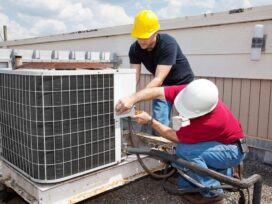
Having a home inspection done is beneficial for both the buyer and the seller
Inspections of prospective new homes are commonplace in the more established real estate markets of the western United States. Home inspections are slowly finding their way into emerging property markets like India after a lengthy downturn in the residential sector starting in 2014 prompted sellers to understand the virtues of the idea. It is caused by the residential sector’s extended downturn. This trend has strengthened more after the COVID-19 pandemic.
How so? Demand in India’s secondary property market decreased as the country’s economic position deteriorated due to the Coronavirus. This was particularly true when taking into account the fact that there were over 7.32 lakh newly available houses in India’s top eight residential marketplaces. In light of the fact that the Coronavirus pandemic has made home safety a main area of anxiety for buyers, pre-listing house inspections may help owners find a buyer considerably more rapidly than they would if they advertised the property for sale without having it examined first.
When we say “home inspection,” what do we mean?
To find out whether there are any major structural or mechanical issues with a house, the buyer should have a professional examination performed by a qualified company or individual. A home inspection is performed to identify any major problems, safety issues, inefficiencies, and indicators that various components utilised in its construction are nearing the end of their useful life. The inspection procedure will reveal any damaged, malfunctioning, or hazardous issues with the home and its surrounding surroundings.
The walls, ceilings, flooring, doors, windows, electrical and plumbing facilities, dampness, seepage, and moisture are all checked during a house inspection, as stated by a home inspection service provider active in the Mumbai and Pune marketplaces. The real estate markets in both locations are covered by this service provider.
Some of the most important things that home inspectors look for are as follows:
- There are structural issues.
- Different roofing issues
- Electrical grid failure
- There might be plumbing issues, and water could cause damage.
- The air conditioner or heater is broken.
infestation with insects and rodents
- Examining the panelling and moulding Examination of many pieces of furniture, gadgets, etc.
- The goal of a home inspection is to help a buyer get a legality certificate for the property.
Before investing your hard-earned money on a piece of real estate, how can you be sure that it is free of flaws? For your peace of mind, Housing.com has partnered with experts in the field to provide you comprehensive house inspections. House inspection packages on Housing Edge include the “civil,” “installation & finishing,” “electrical,” and “plumbing” categories, so users can choose the one that best suits their needs and then utilise the resulting detailed report to make informed decisions about their investments.
Where should we draw the line when it comes to a home inspection?
The purpose of a home inspection is to identify any issues that may pose a threat to the health and safety of the residents; this has nothing to do with the house’s aesthetic value or any changes that may have been made to it for purely cosmetic reasons. It also has nothing to do with cosmetic changes that may have been done to the residence.







